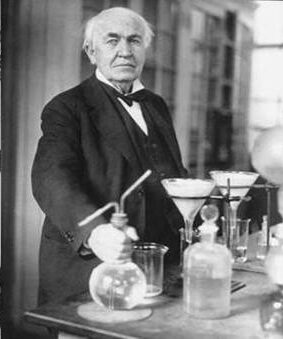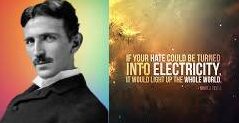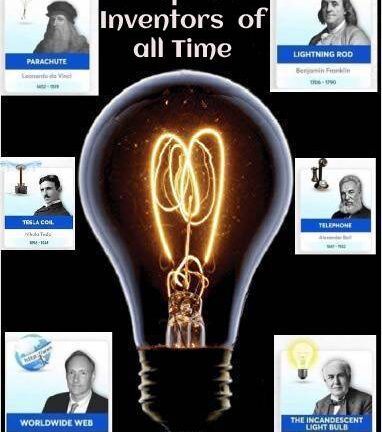Throughout history, numerous inventors have made remarkable contributions to society. Here’s a summary of the Top 10 Inventors Of All Time and their groundbreaking inventions
1. Leonardo da Vinci
Leonardo da Vinci was a true genius. He wasn’t just a famous Renaissance artist but also an incredible scientist and engineer. He imagined inventions long before they could be made, like the helicopter and the battle tank. Leonardo designed mechanical looms, hydraulic saws, submarines, and even robots. His impact on engineering is vast, with countless ideas that were ahead of his time.
2.Thomas Edison
Thomas Edison is the classic example of an inventor. He symbolized the American spirit of innovation and entrepreneurship. Edison was both a brilliant inventor and a sharp businessman, holding thousands of patents. He invented the phonograph, electric light bulb, movie camera, microphone, and alkaline batteries. While Alexander Graham Bell is credited with the telephone, Edison also worked on its development. Interestingly, one of his companies eventually became part of the Thales Group, built on his patents.
3. Archimedes
Archimedes was a renowned engineer and scientist from the 3rd century BC. Though much of his life remains a mystery, he is considered one of the most important minds of classical history. His contributions include inventing the pulley, lever, catapult, cog, and the famous Archimedes screw. His discoveries in fluid mechanics and his “Eureka” moment are still fundamental today.
4. Benjamin Franklin
Benjamin Franklin, one of America’s founding fathers, was more than just a political figure. Known as America’s first scientist, he was also a printer, diplomat, and inventor. Franklin’s legacy includes the invention of the lightning rod, bifocal glasses, and some early work in nanoscience. His wide-ranging work left a lasting impact on both the nation and the field of engineering.
5. Louis Pasteur and Alexander Fleming
Tied for sixth place are Louis Pasteur and Alexander Fleming, both of whom revolutionized medicine. Pasteur, a French microbiologist, invented the principles of vaccination and pasteurization, transforming human health. Fleming, an English scientist, discovered penicillin, which made antibiotics possible. Together, they paved the way for modern medicine by fighting viruses and bacteria.
6. The Montgolfier Brothers and Clément Ader
The Montgolfier brothers and Clément Ader are French pioneers of flight. The Montgolfiers invented the hot air balloon, while Ader developed the first airplane. Ader’s steam-powered aircraft made a brief, uncontrolled flight near Paris, marking the early days of aviation.
7. Nikola Tesla
Nikola Tesla, often seen as one of the greatest inventors, gave us many groundbreaking ideas. He created alternating current (AC), the modern electric motor, and even a remote-controlled boat. There are rumors he also contributed to radar and wireless communications. Despite his genius, Tesla didn’t receive much credit during his life and died in poverty.
8. Auguste and Louis Lumière
The Lumière brothers, Auguste and Louis, invented the cinema. They patented the cinematograph and released the first real movie in 1894, launching the age of motion pictures.
9. Tim Berners-Lee
Tim Berners-Lee is credited with creating the World Wide Web, one of the biggest technological advances of the late 20th century. The internet began as ARPANET, a Pentagon project in 1969 to build a network that could survive nuclear attacks. Berners-Lee took the idea further by inventing hypertext, HTML, and web browsers. In 1989, he made the World Wide Web a reality and opened it to the public in 1991.
10. Alexander Graham Bell
Alexander Graham Bell is famous for inventing the telephone in 1876, revolutionizing communication worldwide. But his work didn’t stop there. As an educator and scientist, Bell’s experience working with the deaf inspired many of his sound innovations. He also invented the photophone, contributed to aviation, and helped develop metal detectors. His relentless pursuit of new ideas greatly impacted the future of communication and technology.

